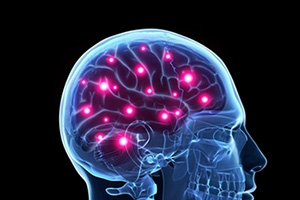Can Trauma Really Make You Repress Memories?
Where Hollywood and modern psychiatry both get it wrong
 People who have traumatic memories can't suppress them - they relive them all the time
People who have traumatic memories can't suppress them - they relive them all the timeI watched a ghost film recently, The Awakening. Seen it? If not, then here's a spoiler alert, because I'm going to give away the ending.
I'm pretty good at suspending disbelief in movie theatres. I believed for a couple of hours that Superman really could fly. I believed in Spielberg's dinosaurs. Heck, I even believed in John Wayne as that 12th century Mongolian megalomaniac Genghis Khan...well, sort of.
But I couldn't believe in the tie-up-all-the-loose-endings dénouement of The Awakening. Why? Because psychologically it made no sense and that was a stretch too far.
So what's my beef with The Awakening?
Ghosts, ghouls, and psychobabble
Long (ghost) story short (1), this level-headed early 1920s gal, the heroine of the movie, is out to discredit all 'spiritual claptrap'. She spends her time spoiling séances by unmasking fraudsters and generally goes around being all level-headed and sceptical and scientific and saying it's all nonsense. In her role as semi-professional ghost prank un-masker, she gets called to this massive boarding school where bumps in the night, apparitions, and general shadowy spookiness seem to be central to the curriculum.
True to form, she thinks it's all hysterical claptrap and sets about proving it. Only she doesn't, because she starts to be haunted herself. All the boarders go back home for Christmas, except one young lad whose parents are not around and for whom our heroine feels a special affinity. The tension builds, goose pimples rise, palms sweat, and nervous laughter rattles through the movie theatre, alternating with occasional embarrassed screams (for which I apologized). So far, so chillingly good, but after lots of stuff happening and you thinking you know what's going on, it turns out...
LAST WARNING - SPOILER ALERT!!
Still reading?
Don't say I didn't warn you!
As I was saying, it turns out...
- The boy she had befriended was really the ghost of her dead brother. She just hadn't recognized him, even though he kind of looked like a normal kid.
- The school was her old family home, in which she'd lived for years; only she hadn't recognized it because she'd forgotten.
- The kindly housekeeper had been her housekeeper as a child, but she had totally forgotten that, too.
And the reason she'd forgotten the countryside in which she'd been raised, the brother she had so loved, the house in which she spent her formative years, and her loving housekeeper? Because she was so traumatized by seeing her murderous father shoot her mother and brother that she'd 'blocked it all out', repressed it to the extent that it was as if she'd never even been in this building before or even heard of her family home turned into a school!
Now, I enjoy believing in ghosts and the beyond and so on for the sake of the story, but for me this glib psychobabble ending smacked of my schooldays story writing, in which 'he woke up and found it was all a dream' served as an easy get-out explanation for a complicated and muddled plot.
Don't get me wrong. I loved the film - except the ending. A friend of mine who holds a psychology degree couldn't understand why I thought it had stretched credibility to the snapping point: "She just blocked out her past! What's so weird about that?"
The myth of suppressed memory
What's weird is that it doesn't really work like that. I'm not saying that nothing is ever repressed or forgotten; what I am saying is that the extent of the suppression is totally unreal. Even if our attractive heroine had forgotten that she'd seen her father murder her beloved brother and mother, would she have forgotten the house she'd grown up in? Who her parents had been? That she'd had a much loved brother?
It's a die-hard myth that still haunts dark corners of the public consciousness. In brief, repression is the idea that to protect ourselves from a terrifying ordeal, we'll often 'block it out' or 'forget it'. Some psychologists believed that, like lancing pus from a boil, getting the person to remember will be cathartic and therapeutic in and of itself. Dealing with traumatic memories is vital, but the simple act of just recalling them in detail is no more effective than any other unpleasant flashback.
Wrong ideas matter because wrong ideas can destroy lives.
How memories can be implanted
Wrong ideas - or, at least, ideas that are over-applied and simplified in psychology - can have grave consequences. This was seen with the 'recovered memory' scandal of the 1990s, in which well-meaning therapists would cause memories of things that never happened to spontaneously arise in their patients. The 'recovered' memories were actually created ones. As a result, families were torn apart as, in some cases, decent loving parents were accused of abuse they had not committed.
This is not to say that real abuse doesn't happen - tragically, of course, it does - but when something really bad happens to you, you tend to remember it. Psychologist Dr Michael Yapko bravely spoke up for the reality of false memory syndrome and against the idea that you could go into therapy to 'find out what happened to you'. He got interested in this area because of the trend of therapists 'uncovering' memories of alien abduction. Maybe inevitably, he was accused by some of 'denying abuse' - a cheap shot, because that was not what he was saying at all (2).
Dangerous assumptions about how memory works
In my article 'The Truth about Hypnosis and Memory', I describe a false memory of my own and also how memories can be created and altered using words.
A few years ago, I had a client with 'bashful bladder syndrome' (an inability to relax enough to be able to urinate in a public toilet); a common complaint of many men. My client had seen a previous therapist who'd convinced herself and half-convinced my client that all this "must have" stemmed from some form of forgotten sexual abuse, despite the client having only happy memories of his childhood.
The therapist decided that it might have been his much loved grandfather (now deceased) who had molested him. She got him to visualize himself as a boy with his grandfather and he'd got a half-image of himself feeling "a bit strange" in a particular room of his grandfather's house.
But try as she might, the therapist couldn't get him to 'recover' any more detail. So perturbed was he that his fond memories of his grandfather may have all been a lie that he travelled to the house in which his grandfather had lived and knocked on the door. He asked the new owners if he could look round and he found that not only did the room he had visualized not exist, but upon checking the house deeds, he found that it had never existed.
Assuming there must be some terrible secret event in the past that must have caused some present day difficulty is, as many assumptions are, highly dangerous. Some people might forget traumatic incidents, but how common is this?
How often does memory repression really happen?
Yapko wrote about the priest Father Porter, who had been found to have molested over one hundred boys. The abuse was discovered many years after it had occurred, when the victims were adults. Porter admitted to the abuse and of the over 100 cases, only three seemed to have forgotten about it. If less than 3% of this man's victims suppressed their memories of the abuse, one thing we might conclude is that - according to this instance, at least - repression of troubling events is not usual.
It does seem to be a fact that talking about traumatic memories can be difficult for survivors because for some, even discussing it brings on the terror. But not speaking about something and having forgotten or repressed it are different things. If someone has had many traumas, it may be that they do forget some of them, simply because there have been so many. But the very worst ones tend to be recalled all too easily - and often this recall happens uncontrollably, in the form of 'flashbacks'.
And sure, sometimes memories you hadn't thought of for a long time get triggered by talking about something in particular, but 'repressed memory' implies more than just something you hadn't thought of in a long time.
How memory is created in the young
Certainly the emotional mind or 'limbic system' might be conditioned by early experiences. For example, a two-year-old child might put a button in her mouth and a parent (fearing she'll choke) might scream at her, causing her to freeze in terror. She might then have an associative phobia of buttons, even into adulthood, without knowing where this started. But it's not that she had suppressed the memory; at such an early age, the memory wouldn't have been laid down in the same way as it would have been had she been, say, six or seven years old.
In a sense, every time she responds with terror to buttons, she is 'retrieving' the sense of that initial memory; but the initial experience may not be amenable to recall because of the different way experiences are processed in the brain at such a young age (3). Even if she suddenly did have an adult-like memory of this experience, it:
- Might simply be a deeply imaginative re-creation of something she had been told had happened to her. It might simply seem like a 'new memory'.
- Wouldn't necessarily help her phobia of buttons as an adult, because there is no evidence that simply recalling some forgotten memory suddenly makes everything all right again.
When people get so drunk that they have 'blackouts' and don't recall what happened the night before, it's not that they have repressed these memories; rather, it's because huge amounts of alcohol interfere with the laying down of memories in the brain. There are literally no memories to recall if those memories are not stored properly to begin with (4).
So where does the idea of 'blocking out' trauma come from? Who 'invented' repression?
Neurological disorders mistaken for psychological ones
 People who have been traumatized do not suppress memories. Quite the opposite, they relive those memories over and over in terrifying flashbacks.
People who have been traumatized do not suppress memories. Quite the opposite, they relive those memories over and over in terrifying flashbacks.It all seems very Freudian, doesn't it? But where did Freud get his ideas? In the early days of the formal study of psychology, many neurologic disorders such as epilepsy, Tourette's Syndrome, and even Parkinson's Disease were seen by some to be 'hysterical' psychological disorders. If the central character in The Awakening had suffered some kind of physical brain injury, then forgetting so many years and details of her life would have been more convincing. At least to me.
Anyway, Sigmund Freud was a student of one Jean-Martin Charcot, a talented French neurologist, professor of anatomical pathology, and experimenter in hypnosis, who directly influenced the emerging new science of psychology.
The theory of repression came from one incident. In 1885, a Parisian workman known as 'Le Log––' was making a delivery for a florist when he was hit with great force on the head during an accident involving a speeding carriage. Back then, closed brain injury - which means no discernable injury on the outside but brain damage on the inside - wasn't understood. If you didn't look injured on the outside, then you couldn't be on the inside.
So even though the injured workman was unconscious for weeks, suffered terrible headaches (unsurprisingly after such a blow to the head), and had partial paralysis, his symptoms were put down to the psychological effects of the trauma of his accident.
Charcot, the great influencer of Freud ('the father of modern psychology'), convinced himself that this man's loss of memory for the incident and repeated blackouts, nose bleeds, and seizures since the accident were due to his need to repress such a traumatic time and were in essence an 'hysterical' psychological reaction. Charcot even tried using hypnosis to help this man unlock his 'repressed memory' of the accident, but failed.
A later autopsy on Le Log–– found structural brain damage - but by that time, the repression myth was born and echoes of all these false assumptions as to how the brain works have come through to modern times. For instance, in addition to the prevalence of the repression myth, we sometimes hear people say things like: "I'm afraid to be hypnotized in case my 'hidden secrets' spill out." As if hypnosis is a truth serum for unlocking repressed memories, rather than a tool to ease genuine painful memories and rehearse new and better ways of being in the future.
In short, I enjoyed the movie The Awakening and Hollywood can be forgiven for misunderstanding how traumatic memories are genuinely processed. As long as modern psychologists and therapists don't automatically buy into the Hollywood model, we should all be okay.
You can learn more about how psychology really works with our free hypnosis course.
Notes:
- Forgive my superficial synopsis; I realize I'm missing out all kinds of plot twists in my simplified retelling.
- See: Yapko, M. (2009). Suggestions of Abuse: True and False Memories of Childhood Sexual Trauma.
- See: LeDoux, J. Synaptic Self: How our brains become who we are.
- See: White, A.M. (2003). What happened? Alcohol, memory blackouts, and the brain. Alcohol Research & Health, 27(2). 186-196.






